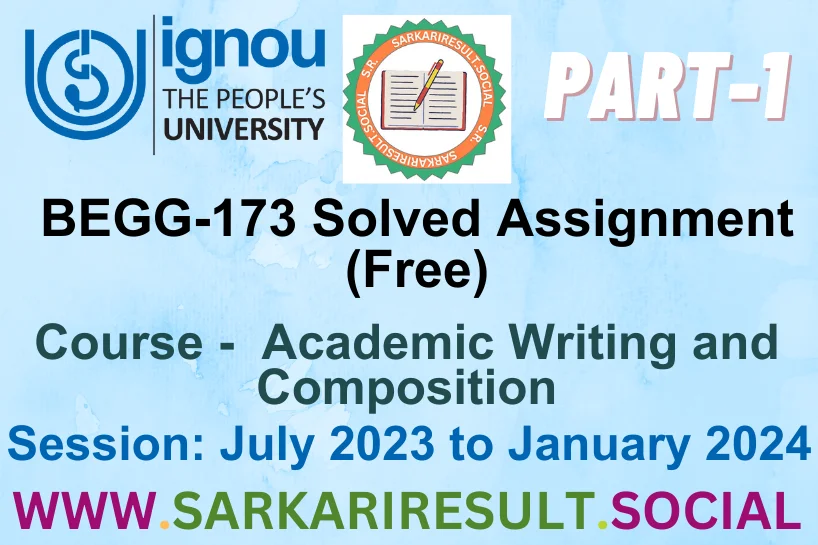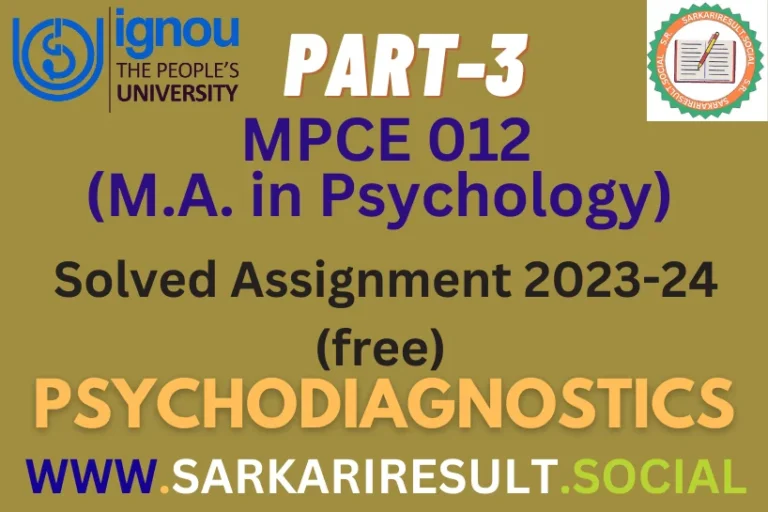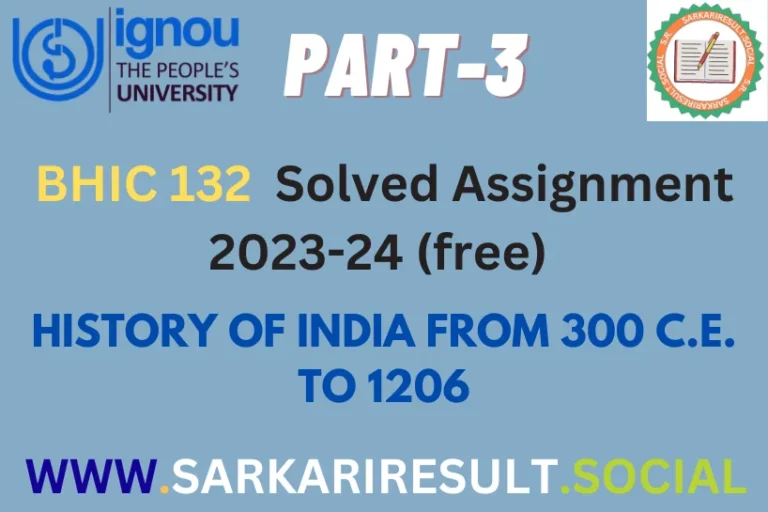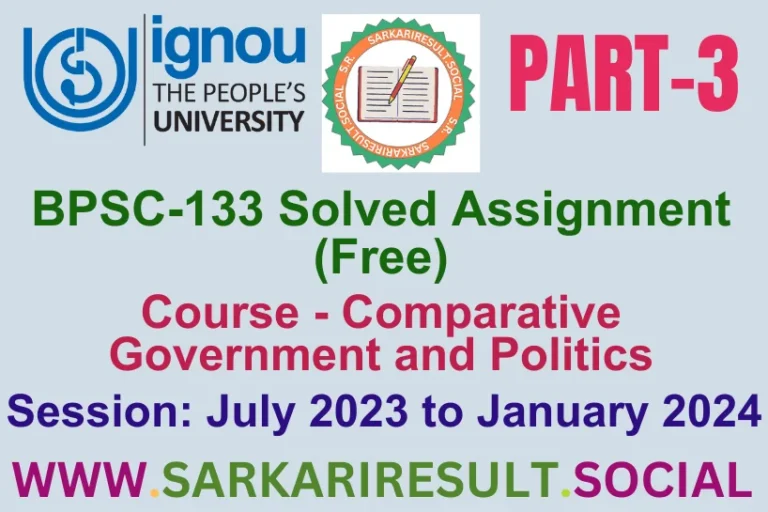BEGG 173 SOLVED IGNOU ASSIGNMENT FREE PART 1

Dive into the world of Academic Writing and Composition BEGG 173 SOLVED IGNOU ASSIGNMENT FREE PART 1 with our meticulous IGNOU Solved Assignments 2024 tailored for the BAG program 2023-2024. In Section A, answer each question with short notes of about 100 words, covering key aspects of academic writing.

Q.1 Write short notes of about 100 words each on the following:
1. What are the components of the ‘prewriting stage’ of the process approach to writing?
Ans. The prewriting stage in the process approach to writing involves crucial components such as brainstorming ideas, outlining, and gathering information. Writers explore and organize thoughts, define their purpose, and identify the audience.
This phase also includes researching, considering the structure of the content, and creating a plan or draft. It serves as the foundation for the writing process, setting the direction and framework before the actual composition begins.
2. What is the function of a ‘topic sentence’ in a paragraph?
Ans. A topic sentence serves as the primary point or controlling idea of a paragraph. It succinctly expresses the main concept, providing readers with a clear preview of what the paragraph will discuss.
Acting as a roadmap, the topic sentence guides the reader through the paragraph’s content, ensuring coherence and focus. It sets the tone, establishes the main theme, and facilitates a smooth transition from the previous paragraph. This crucial sentence encapsulates the paragraph’s essence, enhancing readability and comprehension by offering a concise overview of the central idea.
3. Why are citations important in academic writing?
Ans. Citations in academic writing are essential for several reasons. They give credit to original authors, acknowledging intellectual contributions and avoiding plagiarism. Citations provide a trail for readers to trace and verify sources, ensuring the credibility and reliability of the information.
Additionally, they allow scholars to engage with existing research, fostering a scholarly conversation. Citations also offer a foundation for further exploration, enabling readers to delve into the referenced materials for a more comprehensive understanding of the topic. Overall, citations uphold academic integrity, support transparency, and contribute to the robustness of scholarly discourse.
4. Explain the features of expository writing.
Ans. Expository writing is characterized by clarity, objectivity, and a focus on conveying information. It explains, informs, or describes a specific topic, avoiding personal opinions. The structure is typically organized with a clear introduction, body paragraphs presenting facts or details, and a conclusion that summarizes key points. Use of evidence, examples, and a neutral tone enhances credibility.
Expository writing often employs transitions for smooth flow, and the language is straightforward. It serves to educate or elucidate, prioritizing the provision of information in a logical and coherent manner, making it a common style in academic, journalistic, and technical contexts.
5. What aspects should be kept in mind while writing a business proposal?
Ans. When writing a business proposal, clarity in conveying the business idea is crucial. Clearly define the problem you aim to solve, propose a feasible solution, and highlight the benefits. Understand and address the needs of your audience, demonstrating the value of your proposition.
Structure your proposal logically with an introduction, detailed body, and a compelling conclusion. Use concise, professional language and visuals for clarity. Include a realistic budget, timeline, and potential risks. Proofread meticulously for errors. Ultimately, align your proposal with the goals and expectations of your audience to increase the likelihood of success.
Also See This: BEGG 173 SOLVED IGNOU ASSIGNMENT FREE PART 2







